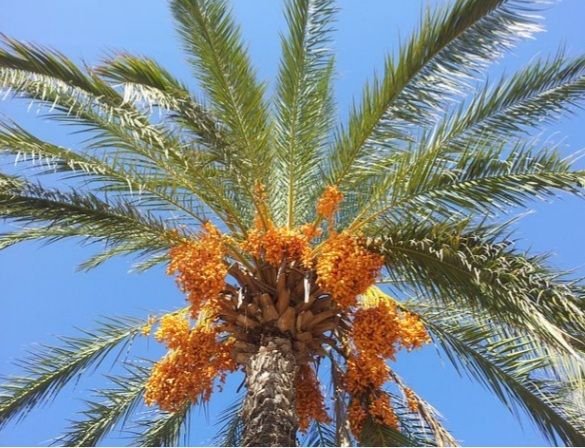In The Name of Allah, The Most Merciful, The Bestower of Mercy.
Allah – The Exalted- says:
وَٱتۡلُ عَلَيۡهِمۡ نَبَأَ ٱلَّذِىٓ ءَاتَيۡنَـٰهُ ءَايَـٰتِنَا فَٱنسَلَخَ مِنۡهَا فَأَتۡبَعَهُ ٱلشَّيۡطَـٰنُ فَكَانَ مِنَ ٱلۡغَاوِينَ
وَلَوۡ شِئۡنَا لَرَفَعۡنَـٰهُ بِہَا وَلَـٰكِنَّهُ ۥۤ أَخۡلَدَ إِلَى ٱلۡأَرۡضِ وَٱتَّبَعَ هَوَٮٰهُۚ فَمَثَلُهُ ۥ كَمَثَلِ ٱلۡڪَلۡبِ إِن تَحۡمِلۡ عَلَيۡهِ يَلۡهَثۡ أَوۡ تَتۡرُڪۡهُ يَلۡهَثۚ ذَّٲلِكَ مَثَلُ ٱلۡقَوۡمِ ٱلَّذِينَ كَذَّبُواْ بِـَٔايَـٰتِنَاۚ فَٱقۡصُصِ ٱلۡقَصَصَ لَعَلَّهُمۡ يَتَفَكَّرُونَ
And recite [O Muhammad] to them the story of him to whom We gave Our Ayat [proofs, evidences, verses, lessons, signs, revelations, etc.], but he threw them away, so Shaitan [Satan] followed him up, and he became of those who went astray. And had We willed, We would surely have elevated him therewith but he clung to the earth and followed his own vain desire. So, his description is the description of a dog: if you drive him away, he lolls his tongue out, or if you leave him alone, he [still] lolls his tongue out. Such is the description of the people who reject Our Ayat [proofs, evidences, verses, lessons, signs, revelations, etc.]. So, relate the stories, perhaps they may reflect. [Al-A’raf Ayat 175-176]
Imam Ibn Al-Qayyim, may Allah have mercy upon him, said:
Allah compared him to a dog because he was given knowledge of the Book and taught what was not given to others, but he abandoned it, followed his desires, and chose Allah’s anger over Allah’s pleasure, the worldly life over the afterlife, and the created beings over the Creator. A dog is known for being one of the greediest animals and most eager for food. Because of this eagerness, it does not wander around without its nose on the ground, sniffing greedily and eagerly. When it comes across a dead animal enough for a hundred dogs, it would not let another dog eat from it, except by growling and trying to gain the upper hand due to eagerness, greed, and covetousness. The person who abandoned Allah’s verses and instead pursued their own desires did so out of a strong craving for material possessions and because his heart was detached from Allah and the afterlife. His intense desire for worldly things is akin to the relentless eagerness of a dog, regardless of whether it is troubled or not.
Ibn Juraij, may Allah have mercy upon him, said: “A dog, when thirsty, is one of the animals with the least patience. It sticks out its tongue the most, whether it is standing, sitting, moving, or not moving. Its strong desire means that it will always stick out its tongue. Similarly, this is the case for a person compared to the dog, as the intense eagerness and burning desire in his heart means that he will always exert himself (for worldly goods at the expense of the afterlife). He continues to exert himself whether he is warned or not”.
Mujaahid, may Allah have mercy upon him, said: “This is similar to someone who is given knowledge of the Book, yet fails to apply it”. Ibn Abbas said, “If you direct him to wisdom, he does not follow it; and if you leave him, he is not guided to goodness akin to a dog that sticks out its tongue whether at ease or shooed away”. Al-Hasan, may Allah have mercy upon him, said: “It is the Munafiq who does not remain steadfast upon truth, regardless of being called or left alone, admonished or not admonished, much like a dog that sticks out its tongue whether shooed away or left undisturbed”.
So, Allah gave an illustration of the one who abandoned His verses, saying that he is misguided, whether admonished or left alone, just like the dog that lolls its tongue out, whether driven away or left alone. This Ayah is similar to the saying of Allah:
وَإِن تَدۡعُوهُمۡ إِلَى ٱلۡهُدَىٰ لَا يَتَّبِعُوڪُمۡۚ سَوَآءٌ عَلَيۡكُمۡ أَدَعَوۡتُمُوهُمۡ أَمۡ أَنتُمۡ صَـٰمِتُونَ
And if you call them to guidance, they follow you not. It is the same for you whether you call them, or you keep silent] [7:193]
Contemplate the wisdom and meanings found in this parable!
Allah informs us that He bestowed knowledge of His verses upon this individual as a blessing, attributing the source of this gift to Himself. Subsequently, Allah mentions that this person abandoned them, likening it to how a snake sheds its skin. Allah did not say “We cast it away from him,” since it was this person who abandoned it due to following his desires. Furthermore, Allah states that Shaytaan approached and pursued him. Initially protected by Allah’s verses, the individual succumbed to Shaytaan’s influence after turning away, akin to a lion overpowering its prey. Consequently, he strayed from the right path, acting contrary to the knowledge he possessed, resembling the misguided scholars who know the truth but act against it.
Then Allah states, “And if We had willed, We would surely have elevated him therewith.” This indicates that elevation in the sight of Allah is not solely attained through knowledge, even though this individual was among the scholars. Rather, elevation is achieved through steadfastness in the truth, prioritising it, and seeking to please Allah. This person was one of the most learned individuals of his time, yet neither was he elevated through his knowledge nor did he reap any benefits from it. We seek Allah’s protection from knowledge that does not bring any benefit. Hence, Allah informs us that He is the One who will elevate a servant with the knowledge He grants if He so wills, otherwise the servant will be debased.
Muqaatil, may Allah have mercy upon him, said: “He found satisfaction in material possessions”. Al-Kalbee, may Allah have mercy upon him, said, “He pursued the debased matters and neglected lofty matters”. Abu Rawqah said, “He prioritised worldly things over the afterlife”. Ataa said, “He desired worldly possessions and followed his Shaytaan”. Ibn Zayd said, “He succumbed to his desires by joining the opposition against Prophet Musa, peace be upon him, and his followers.
This is a description of an evil scholar who goes against the knowledge he possesses. He strayed after acquiring knowledge and deliberately chose disbelief over Iman, and not out of ignorance. He abandoned Iman in a way that made it impossible for him to ever return to it, for he completely disregarded Allah’s verses just as a snake sheds its skin. If he had been left with anything, he would not have completely abandoned it. Shaytaan overpowered him and captured him as his prey. He [غوى-strayed] after being upon a state of [الرشد-the right course- well guided in affairs of the religion]. The word [الغي] means to be misguided in knowledge and intention, and it is more specified to corruption in knowledge and action, just as the word [الضلال] is more specified to corruption in knowledge and creed. When one of the two words is mentioned on its own, it includes the meaning of the other; but if mentioned together, then each of them takes its more specific meaning as mentioned above.
Allah wished that he would not be elevated through knowledge, leading to his destruction. And because he was not raised through knowledge, it became a cause of distress. It would have been better if he were not a scholar, as it would have lessened his punishment.
Allah informs us of his evil intentions, as he chose the most despicable thing over the noblest. His decision was not a result of fleeting thoughts or unconscious ideas, but rather a result of being attached to worldly desires. Az-Zujaaj explained that the root of the words [خلد and أخلد] is [خلود], means to be constant in something. He abandoned guidance to follow his base desires, making them his guide, and followed them.
[An Excerpt from “Badaa’i at-Tafsir al-Jami Limaa Fassarahu Al-Imam Ibn Al-Qayyim” 1/426-431]




